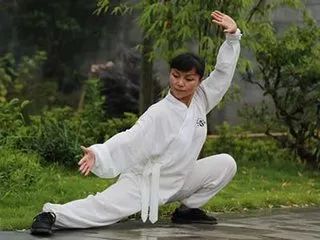
Qigong is a practice that can regulate the body and mind, serving as a beneficial form of exercise. Many people practice Qigong in their daily lives; however, deviations often occur during practice. The main reasons for these deviations include improper methods and poor psychological quality. Therefore, not everyone is suitable for practicing Qigong.
1. Individuals with Defective Personality Traits: Those who are overly concerned about their health, sensitive, suspicious, introverted, easily agitated, or stubborn in their opinions are more susceptible to suggestion and self-suggestion. Such individuals may experience deviations during practice.
2. Those Who Are Indecisive in Their Practice: It is essential to carefully compare and choose a suitable Qigong method before starting. Once a method is determined, one should focus on practicing it without switching between different methods. Practicing multiple methods simultaneously can lead to confusion and disrupt the flow of Qi, resulting in deviations.
3. Individuals with a Tendency for Mental Disorders: For example, elderly individuals who have experienced or currently exhibit consciousness disturbances, depressive states, or dementia symptoms should not practice Qigong. Once in a meditative state, underlying mental disorder factors can be triggered, creating an excitation focus in the cerebral cortex, leading to mental abnormalities that cannot easily revert to a relatively normal state.
4. Individuals with Potential Mental Illness Factors: Those with a family history of mental illness or individuals who have previously suffered from conditions such as schizophrenia, hysteria, or manic-depressive disorder, or those with high suggestibility in their personality traits, should generally avoid practicing Qigong. Such individuals are most likely to induce mental disorders during practice. Even if they have recovered from their illness, practicing Qigong can easily lead to deviations.
5. Individuals with Long-term Psychological Suppression: In the meditative state during practice, the release of internal suppression can lead to emotional agitation. Some patients may also experience cognitive, emotional, and volitional behavioral disorders, resulting in mental disturbances.

6. Individuals Who Are Overly Superstitious or Deeply Influenced by Cults: Such individuals tend to mystify Qigong, easily accepting verbal and behavioral suggestions, and often idolizing a so-called “Qigong Master” as an unquestionable figure. These individuals are not only prone to inducing mental disorders during practice but also often remain oblivious to the adverse consequences, making it difficult to correct deviations.
7. Individuals Who Are Excessively Obsessed with Qigong: Those who pursue Qigong not for natural health and relaxation but for the sake of experiencing “Qi sensations” and “visions,” emphasizing the induction of special functions or achieving “automatic energy emission.” This excessive focus on the “Qigong state” can lead to widespread inhibition in the cerebral cortex, resulting in localized strong excitation foci, ultimately causing dysfunction in the cerebral cortex and mental disorders.
Qigong can effectively regulate the body, not only balancing internal energies but also strengthening the body. Therefore, practicing Qigong is beneficial for everyone, regardless of gender. However, the seven types of individuals mentioned above should avoid practicing Qigong to prevent harm to themselves or those around them.
Welcome to follow our WeChat public account for beneficial mind and body content.

Long press to recognize the QR code to follow us
✬If you like this article, feel free to share it with your friends✬
Share educational health knowledge to help friends better understand how to take care of their bodies!
Please long press “QR Code to Follow” 【View More Health Knowledge】

